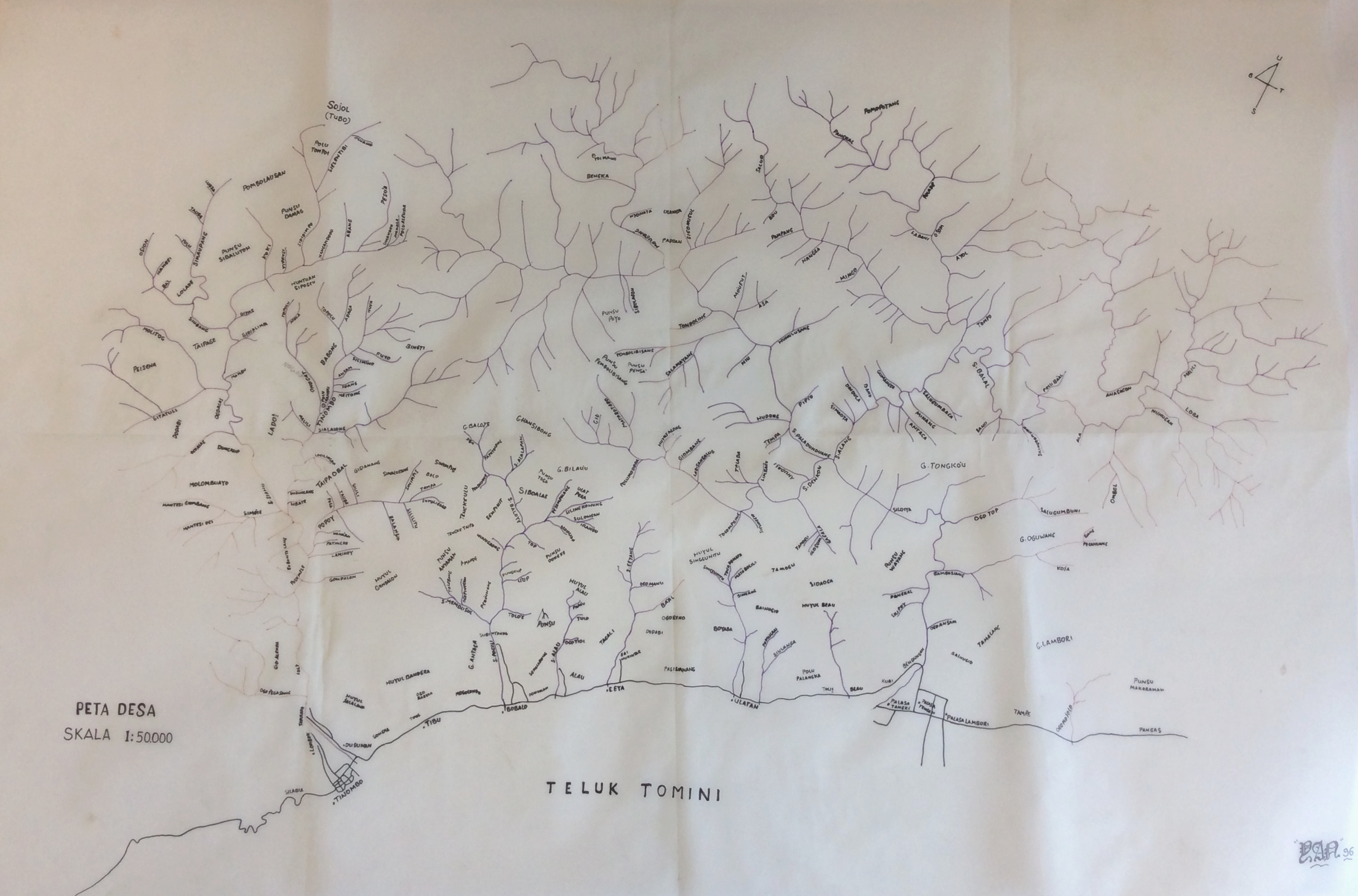
Land's End: Capitalist Relations on an Indigenous Frontier
Released August 2014, Duke University Press
Winner of the American Ethnological Society Senior Book Prize, 2016
Drawing on two decades of ethnographic research in Sulawesi, Indonesia, Tania Murray Li offers an intimate account of the emergence of capitalist relations among indigenous highlanders who privatized their common land to plant a boom crop, cacao. Spurred by the hope of ending their poverty and isolation, some prospered, while others lost their land and struggled to sustain their families. Yet the winners and losers in this transition were not strangers—they were kin and neighbors. Li's richly peopled account takes the reader into the highlanders' world, exploring the dilemmas they faced as sharp inequalities emerged among them. The book challenges complacent, modernization narratives promoted by development agencies that assume inefficient farmers who lose out in the shift to high-value export crops can find jobs elsewhere. Decades of uneven and often jobless growth in Indonesia meant that for newly landless highlanders, land's end was a dead end. The book also has implications for social movement activists, who seldom attend to instances where enclosure is initiated by farmers rather than coerced by the state or agribusiness corporations. Li's attention to the historical, cultural, and ecological dimensions of this conjuncture demonstrates the power of the ethnographic method and its relevance to theory and practice today.
Reviews
"This is what ethnography should look like: eminently readable yet theoretically grounded, nuanced yet incisive, and both theoretically and politically relevant. Her prose is beautiful and she weaves theory seamlessly into narratives, giving something for both academic and non-academic readers to chew on. Her findings about rural farmers at the margins, for whom capitalism is not brought about with a decisive land grab or "development" scheme, but rather slowly and almost accidentally brought on by their own actions, is both surprising and informative. She challenges both the right's simplistic narrative that the market will save the poor - she demonstrates the reverse - and the left's romantic and idealized narratives about the "alternative development" paths for smallholder farmers. The book is one I'd recommend highly to anyone interested in rural development or food justice, as well as, of course, any student of the anthropology of capitalism, agrarian studies, or political ecology." — Anonymous customer review on Amazon.com "This is a wonderful book. It may have the biggest general impact of a book centered on Southeast Asian rural social dynamics since James Scott's seminal Weapons of the Weak. With unusual clarity and great persuasiveness, Tania Murray Li explores theoretical and methodological issues through vivid depictions of people's lives." — Henry Bernstein, Professor Emeritus of Development Studies, University of London
 Journal of Peasant Studies Review Symposium on Land's End (PDF) - Henry Bernstein (2016), JPS review symposium on Land’s End, The Journal of Peasant Studies, 43:4, 942-946
Journal of Peasant Studies Review Symposium on Land's End (PDF) - Henry Bernstein (2016), JPS review symposium on Land’s End, The Journal of Peasant Studies, 43:4, 942-946 Review by Miles Kenney-Lazar (PDF) - International Development Planning Review (2016), pp. 449-450
Review by Miles Kenney-Lazar (PDF) - International Development Planning Review (2016), pp. 449-450 Review by Holly High (PDF) - Oceania (2016), pp. 209-210
Review by Holly High (PDF) - Oceania (2016), pp. 209-210 Review by Jonathan Rigg (PDF) - Pacific Review 89.2 (2016), pp. 489-491
Review by Jonathan Rigg (PDF) - Pacific Review 89.2 (2016), pp. 489-491 Debate by David Henley, et al. (PDF) - Bijdragen Tot de Taal - Land - En Volkenkunde 172 (2016), pp. 91-106
Debate by David Henley, et al. (PDF) - Bijdragen Tot de Taal - Land - En Volkenkunde 172 (2016), pp. 91-106 Review by Elena Hofferberth (PDF) - Progress in Development Studies (16.1, 2016, pp. 103–104)
Review by Elena Hofferberth (PDF) - Progress in Development Studies (16.1, 2016, pp. 103–104) Review by Susan M. Darlington (PDF) - American Ethnologist (February 2016, 43.1, pp. 174-175)
Review by Susan M. Darlington (PDF) - American Ethnologist (February 2016, 43.1, pp. 174-175) Review by Luisa Steur (PDF) - Copenhagen Journal of Asian Studies (33.2, 2015, pp. 106-110)
Review by Luisa Steur (PDF) - Copenhagen Journal of Asian Studies (33.2, 2015, pp. 106-110) Review by Shane Green (PDF) - American Anthropologist (117.4, December 2015, pp. 848-849)
Review by Shane Green (PDF) - American Anthropologist (117.4, December 2015, pp. 848-849)- Review by Ben White - Development and Change (46.6, pp. 1392-4000)
- Review by Sarah Lyon - in Anthropological Quarterly (88.3, Summer 2015, pp. 827-830)
 Review by Vinay Gidwani (PDF) - in Antipode: A Radical Journal of Geography
Review by Vinay Gidwani (PDF) - in Antipode: A Radical Journal of Geography Review by Christopher Webb (PDF) - Canadian Journal of Development Studies (36.2, pp. 259-261)
Review by Christopher Webb (PDF) - Canadian Journal of Development Studies (36.2, pp. 259-261) Review by Patrick Guinness (PDF) - in The Asia Pacific Journal of Anthropology (16.4, pp. 424-429)
Review by Patrick Guinness (PDF) - in The Asia Pacific Journal of Anthropology (16.4, pp. 424-429)- Goodreads review
 Review by Faizah Zakaria (PDF) - Southeast Asian Studies (4.3, December 2015, pp. 626-229)
Review by Faizah Zakaria (PDF) - Southeast Asian Studies (4.3, December 2015, pp. 626-229)
Lectures
April 13, 2016. Commodification, Capitalism and Counter-Movements: Perspectives from South east Asia. Global Development Institute, Manchester University. (Listen and Read Blog Post) October 29, 2015. Land’s End: Capitalist Relations on an Indigenous Frontier. Taaffe-Human Geography Colloquium, Ohio State University. (View YouTube Video)
Study Guide
![]() Book Flyer and Order Form (PDF)
Book Flyer and Order Form (PDF)
Land's End Visual Tour
Land's End Podcasts
Interview with Tania Li about Land’s End, by Lukas Ley
Moving Encounters: Part 2 of Interview with Tania Li about Land’s End, by Lukas Ley
Mapping The Highlands
This is the map mentioned on page 42. We made it in 1996 when we finally obtained an official topographic map of the area. First we traced all the rivers. Then over a period of weeks we asked elders in places we were visiting to help supply the names of rivers and hills in their area, or which they knew from their hunting and trading ventures. In 1998 I gave copies to desa headmen. It was the first time they had seen the full extent of the highlands over which they had official jurisdiction.



